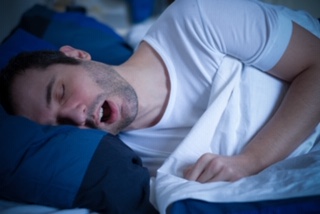
Traditional treatments for sleep apnea include wearing a CPAP mask at night. Though effective, some people find this method uncomfortable. Some home remedies may offer the same benefits. Here are some alternative treatments to reduce sleep apnea symptoms.
Traditional treatment for sleep apnea involves wearing a CPAP mask at night. Although it is effective, some people find that this method is not good. Some home remedies can provide the same benefits. Here are some other remedies to relieve the symptoms of sleep apnea.
-
Maintain a healthy weight
Doctors often recommend that people with sleep apnea lose weight. Being overweight, especially in the upper body, can increase the risk of airway obstruction and narrowing of the nasal passages. These obstructions can make it difficult for you to breathe suddenly or for a long time while you sleep.
Maintaining a healthy weight can clear your airways and reduce the symptoms of sleep apnea. Trusted research shows that weight loss in obese people can eliminate the need for upper airway surgery or long-term CPAP therapy.
In some cases, weight loss can eliminate sleep apnea. However, if you regain the weight, it’s possible for the condition to return.
-
Alter your sleep position
Although it’s a small change, changing your sleeping position can reduce sleep apnea symptoms and improve your night’s rest. A 2006 study found that more than half of obstructive sleep apnea is situational. Studies have shown that sleeping on your back – the so-called supine position – can make symptoms worse. For some adults, sleeping on their side can help restore normal breathing.
However, a 2002 study found that children with sleep apnea sleep better on their backs. Discuss the condition and symptoms of sleep apnea with your doctor to determine your treatment options.
-
Use a humidifier
Humidifiers are devices that add moisture to the air. Dry air can irritate the body and the respiratory system. Using a humidifier can open your airways, decrease congestion, and encourage clearer breathing.
For added benefits, consider adding lavender, peppermint, or eucalyptus oil to a humidifier. These three essential oils have known anti-inflammatory and soothing benefits.
Follow the manufacturer’s instructions on cleaning your humidifier. They can harbor molds and bacteria.
-
Avoid alcohol and smoking
Lifestyle changes can improve your health and promote better sleep habits. Consider quitting smoking and limiting alcohol consumption to reduce sleep apnea. Alcohol weakens the muscles of the throat that control your breathing. This can stop snoring and sleep patterns. It can also cause inflammation of the airways, restricting your breathing.
Like alcohol, smoking tobacco can also contribute to inflammation and swelling in the airways. This can make your snoring and apnea worse. A 2012 study identified smoking as a risk factor for developing sleep apnea. The study said that people with sleep problems are also more likely to smoke, so treating sleep apnea can help stop smoking.
-
Use oral appliances
Oral appliances can help with sleep apnea by supporting your jaw or tongue to keep the airway open while you sleep.
Two broad categories are mandibular augmentation devices and tongue support devices. These work by moving your jaw or tongue forward to reduce the obstruction in the back of your throat.
These tools range from affordable options to dentist-friendly tools. The American Academy of Dental Sleep Medicine recommends oral appliances as an effective treatment for sleep apnea.
Dr. Montz, Dr. Maher, or Dr. Dunwody at Houston Sleep Solutions South will be able to help you determine if sleep apnea treatment is right for you. Contact us now.
Locations (Tap to open in Google Maps):
2443 S Galveston Ave
Pearland, Texas 77581
Pearland Phone: 281-485-48291769 S. Friendswood Dr. Ste 107
Friendswood, TX 77546
Friendswood Phone: 281-482-1275
